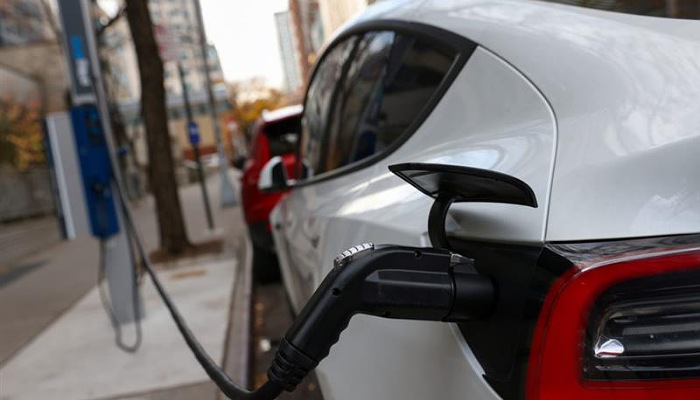
- The sales of electric vehicles (EVs) are rising at an accelerated rate in some of the most significant users of Nigerian crude oil
- Nigeria’s major importers of oil, France, Spain, India, and the United States are beginning to embrace electric vehicles
- Africa’s biggest oil-producing country is still getting used to life without oil, but it thinks there will always be a demand for black gold
Some of the largest consumers of Nigerian crude oil are witnessing explosive growth in the sales of electric vehicles (EVs), endangering Nigeria’s earnings from petroleum and its byproducts.
In the first quarter (Q1) of 2024, National Bureau of Statistics data found that France, Spain, India, and the United States were the four leading importers of Nigerian oil; yet, during the same period, they witnessed notable increases in the adoption of electric vehicles.
After Microsoft, 4 others, India’s steel company to leave Nigeria amid economic hardships
In France, EV sales increased 24.3% in the first quarter of 2024 compared to the same period in 2023. In India, EV adoption increased by 40% compared to the same period in 2023.
The worst was seen in the US, as EV sales increased dramatically by 50% over the same period in 2023. Compared to the same period in 2023, EV sales in Spain increased by 12% in the first quarter of 2024.
What analysts said
Africa’s largest oil-producing nation, according to Tunde Ayeni, a senior energy analyst at a Lagos-based consultancy business, is still adjusting to life after oil, believing that the market for black gold will always exist.
Ayeni said:
“This is despite a rising push for electric vehicles sales across Europe, which may undermine Nigeria’s most valuable export.”
Dealers sell cooking gas at new cost after three-week price crash
Despite decreasing growth in certain areas, the International Energy Agency (IEA) predicted that electric and plug-in hybrid car sales would reach a new global record in 2024.
According to the Paris-based forecaster, sales of plug-in hybrid electric vehicles and battery electric vehicles will reach 17 million in 2024, an increase of more than 20% from 2023.
Although sales are higher in certain nations than others, IEA chief energy economist Fatih Birol noted that the shift is gaining momentum.
“The wave of investment in battery manufacturing suggests the EV supply chain is advancing to meet automakers’ ambitious plans for expansion. As a result, the share of EVs on the roads is expected to climb rapidly.”
Bad news for Nigeria
BusinessDay reported that the growing popularity of electric vehicles is not good news for oil-producing countries, particularly Nigeria, which cannot fully utilize its crude oil reserves.
Energy think tanks predict that by 2030, there may be less demand for oil.
According to Aisha Mohammed, an energy analyst at the Centre for Development Studies in Lagos, Nigeria is especially concerned about the future worth of crude oil because fuels, oils, and distillation products account for more than 90% of the country’s export value.
Mohammed said:
“I shudder when Nigerian lawmakers still shout their voices hoarse on the relevance of oil, rather than challenge themselves in building knowledge-driven economies which can truly create wealth.”
NNPC, others launch Nigeria’s first electric vehicle
Legit.ng Nigeria’s first electric vehicle (EV) charging station was inaugurated on Thursday, May 23, by NNPC New Energies Limited (NNEL), a subsidiary of the national oil firm Shafa Energies and Nigus International.
This represents a significant step toward Nigeria’s goal of weaning itself off more costly energy sources.
The parties also signed a Memorandum of Understanding (MoU) to establish charging stations in Nigeria and ensure their distribution throughout the country.
Source: Legit.ng







